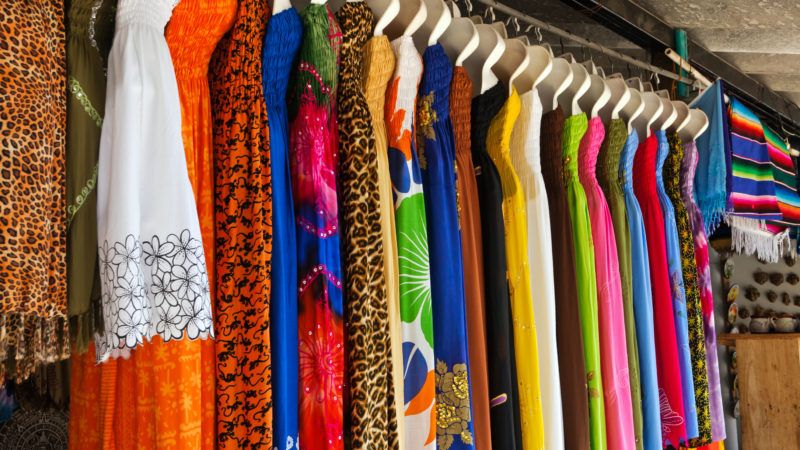Judge Rules Businesswoman Must Remove Dresses From Her Home
Fairfax County, Virginia, allows home businesses but prohibits them from keeping inventory on site.

E-commerce has allowed people to operate businesses from their own homes, provided local zoning ordinances don't get in the way.
In Virginia this past Friday, the Fairfax County Circuit Court ruled that Marietta Grundlehner had to stop selling dresses online from her Springfield townhouse and get rid of any remaining inventory at her home.
The decision, which comes after two years of wrangling with code enforcers, is financially devastating for Grundlehner, who says her dress business earned her $30,000 a year she now might have to go without.
"It's terrifying to think, 'How am I going to make my car payment. Am I going to lose things like car insurance because I can't pay them?' There are so many things I pay for with that money that I don't know what I'm going to do," Grundlehner told local ABC affiliate WJLA.
Grundlehner, according to a petition she started on Change.org, started selling clothing from LulaRoe, a multi-level marketing business, out of her home several years ago to supplement her income from her day job as a teacher. Wanting to spend more time with her young son, she decided to make it a full-time gig.
This, apparently, was illegal. Fairfax County's zoning code allows home businesses, but it forbids storing, displaying, or selling inventory from a residence unless those wares are also manufactured on-site. And Grundlehner purchased finished products from LulaRoe before reselling them via the internet.
Grundlehner was able to operate her business in peace for several years. But in January 2018, someone dimed her out to county code enforcers. Like many local governments, Fairfax County doesn't actively seek out code violations to stop, instead responding to complaints made by residents.
"We don't go out looking for people who are in violation. Someone in her community, someone in any community that has an issue, calls our code compliance department," Fairfax County Supervisor Dan Storck told WJLA. The county receives fewer than 200 such complaints each year; most, he said, turn out either to be resolvable quickly or not to be violations at all.
That wasn't the case with Grundlehner. She told WJLA that she first got a home occupation permit in April 2018, after consulting with zoning inspectors. But since the underlying nature of her home business was still illegal, this offered her little protection and she continued to receive notices of violation.
At a hearing Friday, Grundlehner was told she had to cease selling clothes from her home and get rid of her inventory within five business days.
For now, Grundlehner is hoping the county will change its zoning code to let her business continue.
Grundlehner's situation is similar to the case of Lij Shaw, a Nashville musician whose home studio business was targeted by code enforcers after an anonymous tipster informed them that Shaw was having musicians over to record, in violation of the city's prohibition on client visits to home businesses.
Shaw has been fighting for his right to continue operating his home recording studio ever since. In 2017, he sued the city, arguing that its ban on client prohibitions violated Tennessee's state constitution.
Shaw is being represented by the Insitute for Justice and by Tennessee's Beacon Center. A lower court dismissed his lawsuit in October, and he is currently appealing it.
Home businesses are rarely flat-out banned in the U.S. Instead, home business owners find themselves tripped up by antiquated restrictions on what commercial activities they can and cannot do from their homes. Changing these laws is often an uphill battle against entrenched neighborhood groups who see the strict separation of residential and commercial spaces as essential to preserving their quality of life.
As the internet allows people to do more and more business from their homes, these kinds of home business restrictions will kneecap entrepreneurs trying to make a living through the creative use of their property.
Rent Free is a weekly newsletter from Christian Britschgi on urbanism and the fight for less regulation, more housing, more property rights, and more freedom in America's cities.


Show Comments (58)